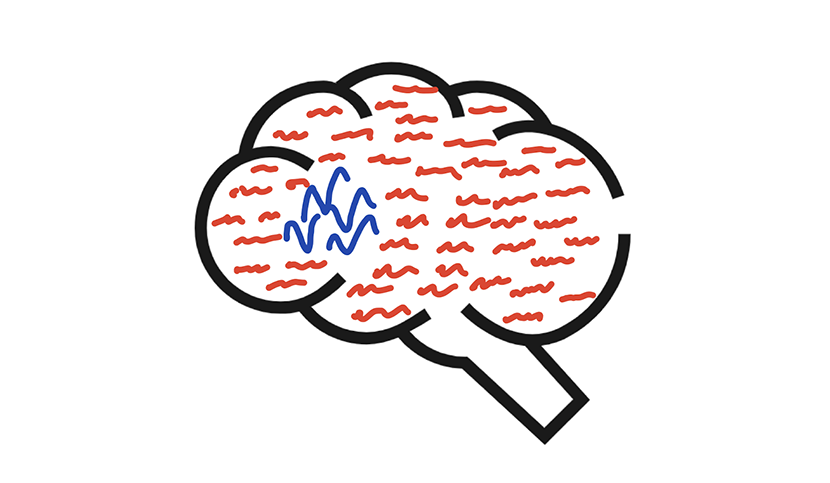Attentional lapses occur commonly and are associated with mind wandering, where focus is turned to thoughts unrelated to ongoing tasks and environmental demands, or mind blanking, where the stream of consciousness itself comes to a halt. To understand the neural mechanisms underlying attentional lapses, we studied the behaviour, subjective experience and neural activity of healthy participants performing a task. Random interruptions prompted participants to indicate their mental states as task-focused, mind-wandering or mind-blanking. Using high-density electroencephalography, we report here that spatially and temporally localized slow waves, a pattern of neural activity characteristic of the transition toward sleep, accompany behavioural markers of lapses and preceded reports of mind wandering and mind blanking. The location of slow waves could distinguish between sluggish and impulsive behaviours, and between mind wandering and mind blanking. Our results suggest attentional lapses share a common physiological origin: the emergence of local sleep-like activity within the awake brain.
Predicting lapses of attention with sleep-like slow waves
Research Published June 29 2021






